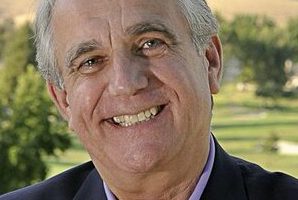Column: CEO Learnings
The advance of secularism and moral relativism in the public square is accelerating at an alarming rate – just watch prime time TV programming; see a movie targeted to teens/young adults such as “The Pineapple Express”; note the increase in state court rulings redefining marriage or forcing healthcare workers to participate in medical procedures against their faith-based beliefs; and pay attention to the increasing number of state ballot initiatives dealing with physician assisted suicide.
The Christian Church – as expressed in the Magisterium and echoed in pockets of ageless Judeo-Christian teachings worldwide— is the only true countervailing force in the public square. Without Her voice, the modern world’s surrender to the secular, and a life “lived as if God did not exist,” would be complete. Secularists and moral relativists know this and are stepping up their efforts to marginalize the “low hanging fruit,” namely the strongest, most consistent, and loudest of these voices, the Roman Catholic Church, which they view as an obstacle to “emancipation” and “liberation.”
Unfortunately, marginalizing forces exist not only outside, but also within the Church. The forces within the Church either have become blind to or never understood the Church’s role in the world and, as a result, have ceased to think of Her as a missionary enterprise.
As author Philip Lawler points out, “Culture has been shaping Catholicism. The engines of evangelization are running in reverse. (We have) made peace with secular liberals by backing away from forcefully speaking in the public square on the tenets of our faith…We are in retreat…(some) seem to be satisfied if they can cling to their dignity while conducting what is, in effect, a going-out-of-business sale.”
Going out-of-business in Seattle
A recent example of this retreat is an Op-Ed piece, “Church Leaders Should be Careful Influencing Political Campaigns,” published in the Seattle Times (1.8.09) by two self-identified Catholics —Terrence Carroll, a retired superior court judge who served as chair of the Seattle Archdiocese panel on clergy abuse, and Sam Sperry, former editor at the Seattle Post-Intelligencer and member of the Washington State Catholic Conference board. Both noted they were lifelong Catholics educated in Catholic schools.
In their article, Carroll and Sperry highlight the lead role Bishops took in opposing Washington State’s Initiative 1000, the so-called death-with-dignity proposal (doctor-assisted suicide). The authors also point out the role of Catholic officials in California who helped pass Proposition 8, which re-established the legal definition of marriage as only that between a man and a woman (the authors chose to characterize this as taking “from gay citizens the right to marry” using the language crafted gay activists).
Drawing from these examples, and from the much-discussed national issue of Catholics voting for pro-choice politicians, Carroll and Sperry accuse church leaders of using their authority to impose their own moral standards and threatening members of “our” faith if Catholics do not vote the way these leaders feel is the morally right way to vote. “These Bishops,” claim Carroll and Sperry, “must respect those among the faithful who, in good conscience, have formed their own differing views.” Furthermore, these authors claim that if the bishops want to see the pews filled on Sunday, the Church needs to become “known for its tolerance rather than for its rigid adherence to questionable dogma.”
Carroll and Sperry, and others with similarly self-illuminated consciences, appear that they would be happier with a different Church – one that embraces a different dogma and one that does not speak out, or at least that does not speak out on issues with which they disagree. They are “clueless.” Their problem is not with the Church. It can’t be. The Church is merely the depository, the safeguard, of the teachings of Christ. Nor is their problem with the bishops, successors to the Apostles, who are—in virtue of their office — commanded to proclaim Christ and His teachings throughout the world. The fundamental problem of such people is not with the Church or with the bishops it is with Christ, His teachings, and the Holy Spirit’s guidance throughout the ages.
The Church and its bishops bear a grave responsibility for advancing the common good, defending the life and dignity of all, including the most vulnerable, in the public square. We, the laity, share this burden. We must not become an obstacle to the formation of the Catholic conscience by facilitating or, at the very least, accommodating the secularization of the Christian conscience! Rather, we must be “the salt” in the public square, renewing culture through distinctive and authentic Christian witness as we were taught and commanded by Christ through His Church.
View Articles Thomas M. Loarie is a popular host of The Mentors Radio Show, the founder and CEO of BryoLogyx Inc. (BryoLogyx.com), and a seasoned corporate... MORE »


